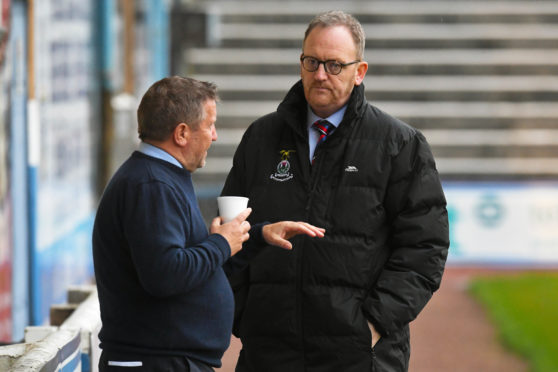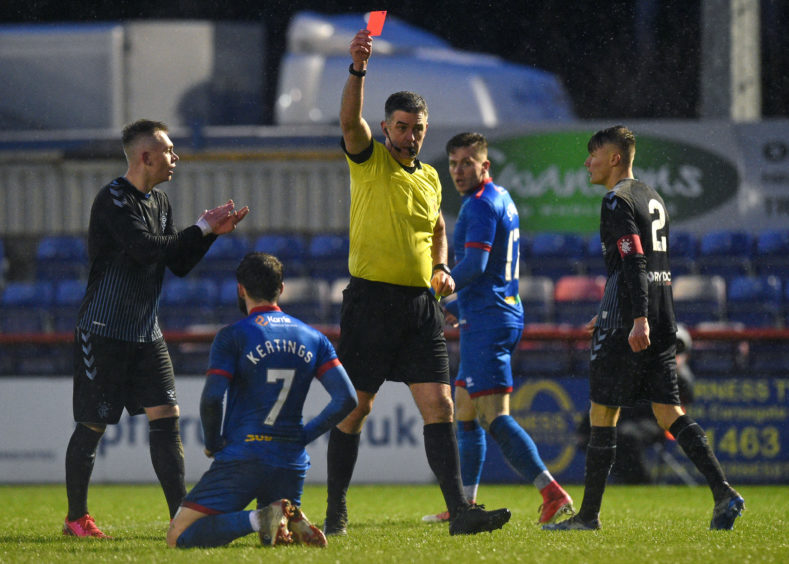Caley Thistle yesterday vowed to keep up the fight to reverse James Keatings’ Challenge Cup final ban.
There was furore throughout Scottish football and beyond after a three-man Scottish FA judicial panel threw out their appeal against the player’s second yellow card for alleged diving in Sunday’s semi-final against Rangers colts.
Footage of the incident attracted hundreds of thousands of social media hits, while more than 20 clubs – and even BBC pundit Gary Lineker – voiced support.
Caley Thistle made it clear they were not prepared to quietly let the matter drop, given their “duty of care” to the distraught Keatings and to supporters.
Chief executive Scot Gardiner said: “Officially, as things stand, you cannot appeal an appeal. We knew that prior to the appeal so that’s pretty straightforward. However, we’re looking at a number of different things.
“I think we have gone further than any of the other 41 clubs (have in the past) last night in our statement. We didn’t do it lightly but it was one of those moments we felt we didn’t have a choice.
“We have a duty of care to James Keatings, or any of our players for that matter, and to our supporters. As appreciative as we are of support from fans, chairmen and chief executives of other clubs, and everyone else who has been contacting us, our first duty of care is to our players and our supporters.
“If we do nothing, we feel that will impact us. We’ve seen multiple people in the past say, if the club doesn’t do something I won’t be back.
“Had we lost the game, people could have said it was sour grapes or we were crying salty tears, but the fact we won is by the by. It is a measure of how serious we are in pursuing this.”
Gardiner seemed to rule out an appeal to the international Court of Arbitration for Sport (CAS), based in Switzerland.
Keatings, the chief executive confirmed, was devastated by the blow of missing the March 28 cup final against Raith Rovers.
Gardiner said: “I spoke to James on Sunday night after the game and he was not in a good place at all. Wednesday morning we were confident we would win the tribunal. I told James that.
“When James went off to training I said, ‘we’ll be fine here because, once the panel sees it, we’ll win’. That meant telling him the ruling late that day was very difficult.
“The boy was devastated and I understand why he would be. Players don’t get to national finals too often unless they’re at big clubs and, even then, at some of the bigger clubs you don’t make national finals.
“It means a lot. It doesn’t matter what the tournament is, it is a national final, live on TV and a chance to win a medal. That’s why boys like James train all their life and play hard.
“I understand why he was so devastated and that’s why we really had to come in behind him.”
Gardiner believes the huge row should raise “serious questions” about current appeals procedures at the SFA.
He said: “Our statement was not written lightly at all. There were times I crossed out lines and wrote them back because I felt we had to say this.
“In fairness, the chairman said to me to put his name on it too, because it is important the club is seen to support our player and it is important to supporters.”


